Princeton University hosted the 5th annual IvyQ conference, which invites LGBTQ-identified students and allies who attend Ivy League Universities to get some knowledge and network the thirst. Although I’m a senior, this year marked my first (and therefore last) venture into the land of ivory-tower queerness. Here are a few things I learned from my exploits.
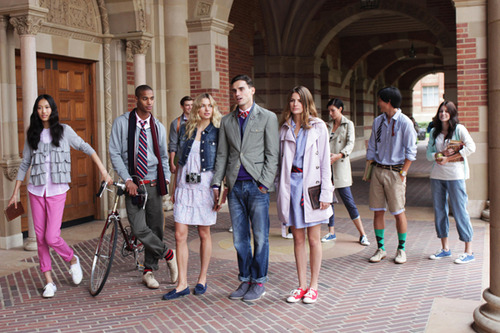
1. Check your privilege — seriously
In a lot of mainstream social justice circles, the phrase “check your privilege” becomes synonymous with recognizing that social institutions and systems grant you certain benefits at the expense of other individuals or groups. At IvyQ though, the very notion of a conference almost exclusive to Ivy League students definitely invokes a brand of elitism. All of our schools were built on land violently stolen from indigenous people, constructed by slave labor, and designed to benefit from a capitalist class structure that values people based on their socioeconomic status. That’s a whole lot to work through, but we can’t hope to fight heteronormative, dominant cultures and to campaign for LGBTQ rights without challenging other systems of oppression that allowed us to be at that conference.
I’d be lying to say that everyone at the conference worked to dismantle Oppression, or that I even succeeded at checking my own privilege all of the time, but many of the workshop facilitators encouraged students to not only acknowledge our privilege(s), but also to interrogate, restrain, and rectify the faults of our privilege(s).
2. Socialize
It’s really tempting to hang out with your friends all weekend and gawk at the beautiful people who happen to be at the conference, but it’s a really good idea to… ya know, talk to some people. You can hang out with your friends back at school. Take a chance flirting with the beautiful woman with a septum piercing and a tattoo of a Toni Morrison quote. Ask an alum how they negotiated the workforce and getting hired while being a militant queer. Dress up in drag and dance your ass off in front of all of your peers, and then let them praise you for the next two days. Do all of the above.

3. Janet Mock is a goddess
“Never underestimate the power of your voice and your experience,” Janet Mock encouraged a crowd of college students at her keynote address. In the realest speech I’ve ever heard, Mock not only strove to transform disenchanted, queer students into confident activists and advocates of their own rights, but she was also so honest about her own struggles and was not ashamed to share her sorrows. Mock, without a doubt, had a horrendous week, thanks to Piers Morgan, but still took the time out to uplift a group of young scholars — many of whom (like myself) will never experience the painful reality of Black trans* womanhood. “There is strength in vulnerability,” she asserted, wiping tears from her eyes. “I can be scared and strong at the same time.” Thank you, Janet Mock. You never cease to inspire.
4. Bring Snacks
See, what some people had thought was that a school with a huge endowment like Princeton was gonna feed us like monarchs. WRONG. Lezbe real, they were not trying to spend more money on us than necessary. Being a senior, I anticipated the administrative trifling that took place when lunch time came around on the first day and they handed me half a sandwich*. Thankfully, my backpack was stuffed with two bags of Smartfood popcorn, a box full of oatmeal, a jar of peanut butter, some tortilla chips, a box of instant mediterranean couscous, an apple, an avocado, and three packets of hot chocolate. No, I did not finish the entire backpack of food in four days but I definitely was prepared.
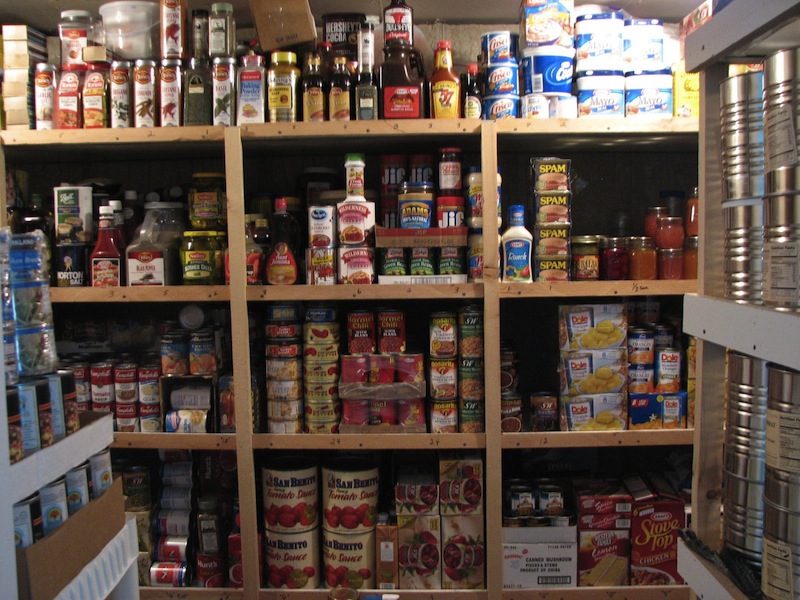
*In all honesty, some of our meals were provided and I had the privilege of having the means to buy food if/when worst came to worst.
5. Take breaks!
At the beginning of day one, you are the bounciest, most jubilant little queer the world has ever seen. You go to event after event, trying to meet people and attending workshops with intense names like “Body Party: Queer Bodies, Sex and the Media,” or “Queer and Trans Resistance and Resilience in a Time of HIV Criminalization and Mass Incarceration”. So cute.After lunchtime, something chemical starts to happen within you and suddenly it’s so hard to keep your eyes open. Instead of listening to the workshop facilitator, you’re planning the next zine about orgasms you want to write, and you’re resisting a strong urge to play Candy Crush on your phone.
Take a break! It’s not a bad reflection of your rainbow spirit if you need some space. Go take a nap (maybe with that aforementioned cutie with the Toni Morrison tat, if you play your cards right). Wander around and explore the campus. Maybe even crash a frat event, a sports game, or another conference that happens to be taking place at the same school on the same weekend. (I personally crashed the Vegan Conference because I figured that a convention of vegans has to be pretty queer.) Once you’ve recharged, you can go back to being your bouncy, jubilant self.
6. Staceyann Chin is everything
I would consensually have her babies any day. I’ll let her humor, wit, and brilliant writing speak for themselves. Excuse the shoddy video quality.
7. Exclusion is a thing
Remember that time bisexuals said that they felt excluded from LGBTQ communities because of biphobia? Biphobia is still a thing! Remember that time trans* people were marginalized within a marginalized community? Guess who’s still marginalized. Asexual people, people with mental or physical disabilities, and intersex people, among others, join the ranks of groups within LGBTQ communities that often get placed on the back-burner as discussion topics when the rest of us run out of things to say. IvyQ reminded me that we do not have an LGBTQ community if we only talk about the “L” and the “G”. It’s not enough to refer to other identities in a gesture of inclusivity; we need to make sure that we are always tending to the needs of all members of our queer family.

8. The Beyoncé Struggle
If you don’t like Beyoncé’s latest album you’re going to struggle at parties. Generally speaking, if you don’t like or haven’t listened to Beyoncé’s latest album, you might struggle to understand more than a few queer cultural references. Your peers’ newfound fascination with surfboarts will seem odd. You’ll be unsure how everyone became ***Flawless, though you’ll appreciate the compliments, if not the uncanny punctuation. There won’t be enough partitions to separate you from the Bey-worship. Honestly, I don’t think anyone should force themselves to like Beyoncé if they don’t. Maybe skip a few parties or tell your friends to translate their Beyisms if you’re not one to conform. Or dance your ass off anyway because you woke up like this.

9. Consent is more important than quenching the thirst
I did not realize how strong the hookup culture was at a big LGBTQ conference like IvyQ until I physically attended. Once the sun went down, everyone seemed to turn up. I have nothing against hookups or hookup culture, but I think that our communities do have to challenge the role hookups play in our interactions with one another.
First of all, hyper-sexualizing our communities can leave some people feeling pressured to engage in sexual activities. Any pressure to have sex or engage in sexual activities leaves little room for consent, and if we’re going to create spaces where individuals can feel “liberated” enough to perform and pursue their sexual desires, we must also fiercely endorse consent and respect for other people’s boundaries. Furthermore, we must examine who has access to this hookup culture. For example, some asexual people might find a conference where the most emphasized and publicized social activities promote hooking up as the “norm” and unintentionally alienating of other perspectives. Also, we must consider if the venues and setup of our parties and get-togethers are accessible to people with disabilities of any kind, instead of simply assuming that everyone fits the same socially acceptable standards of ability. It’s not impossible to take multiple perspectives into account, even when we’re hooking up. Likewise, it’s not weird, uncool, or awkward to endorse consensual sex/sexual activities. Consent-focused conversations are always where our discussions should begin when it comes to thirst quenching.
10. Have fun, have real expectations
IvyQ is not without its faults, problems, or shortcomings. IvyQ is also a great place to explore your sexuality and to learn more about issues concerning LGBTQ communities. When heading to a big queer conference, it helps to keep an open-mind about the format, the events and the participants of the conference and to take advantage of every and all resources that you can. All in all, conferences like IvyQ are really about cherishing and embracing your various identities.
Did you go to IvyQ? Have you been to other queer conferences? Let me know about your experiences in the comments!




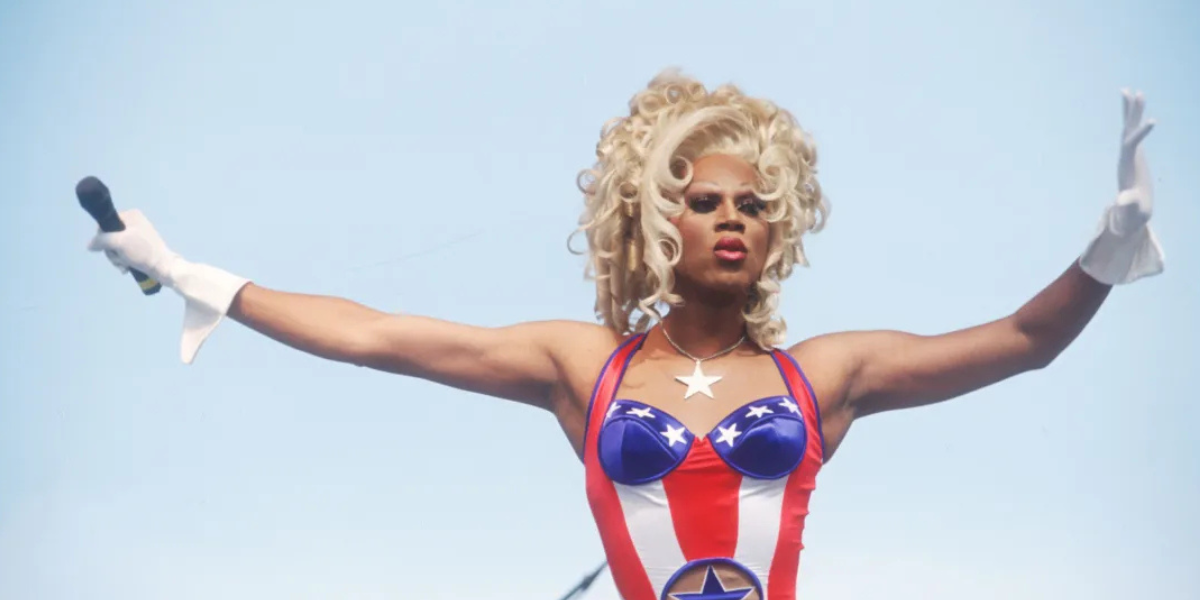
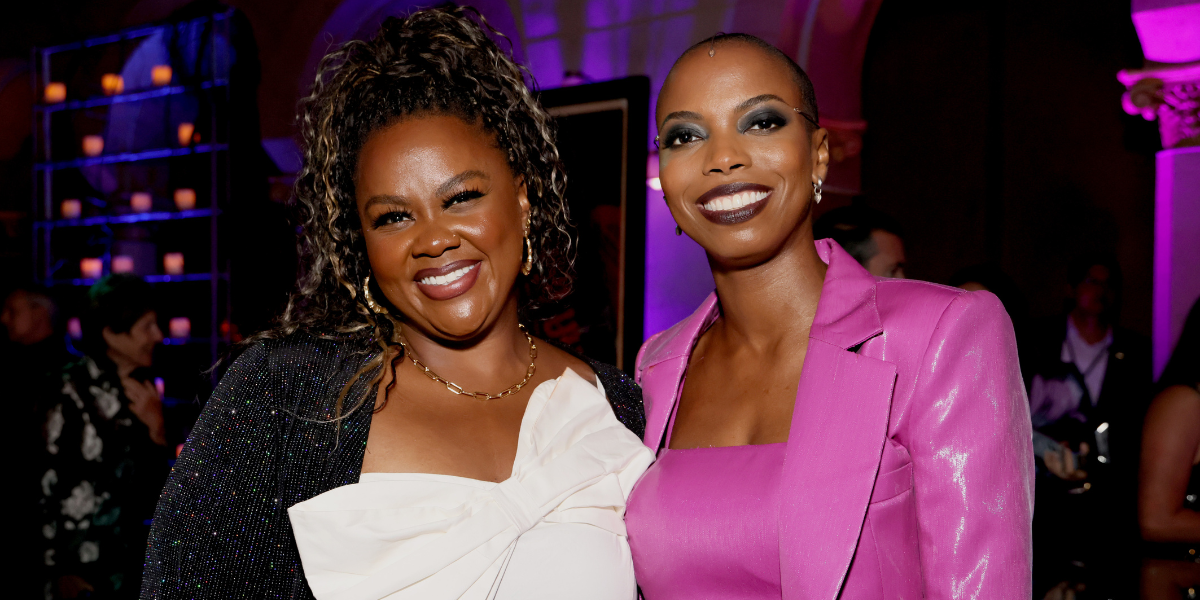
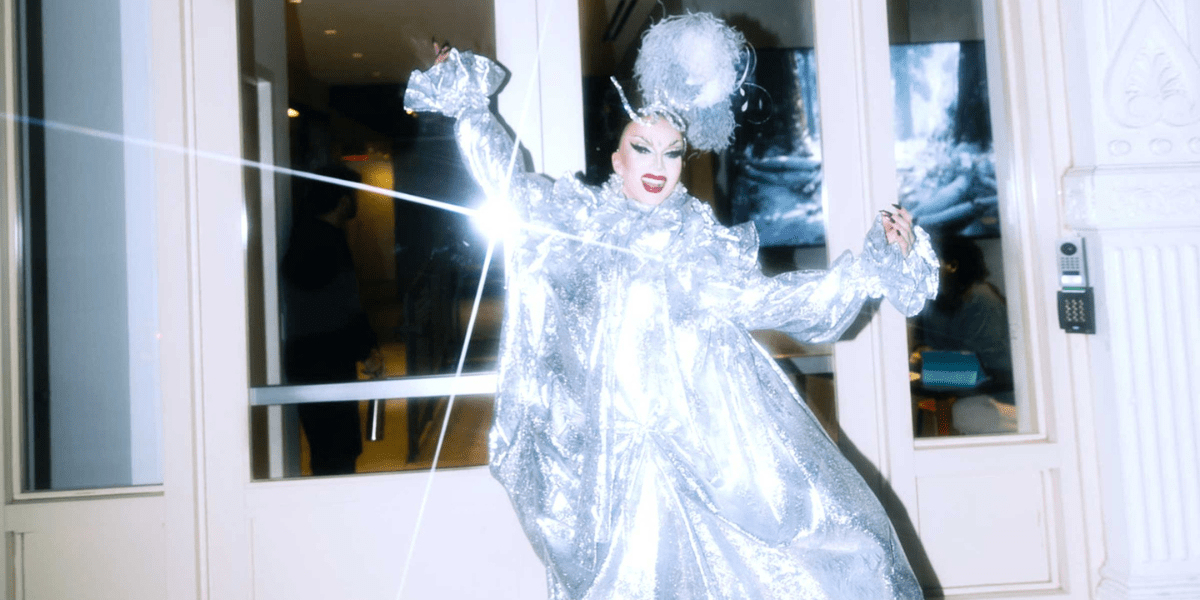
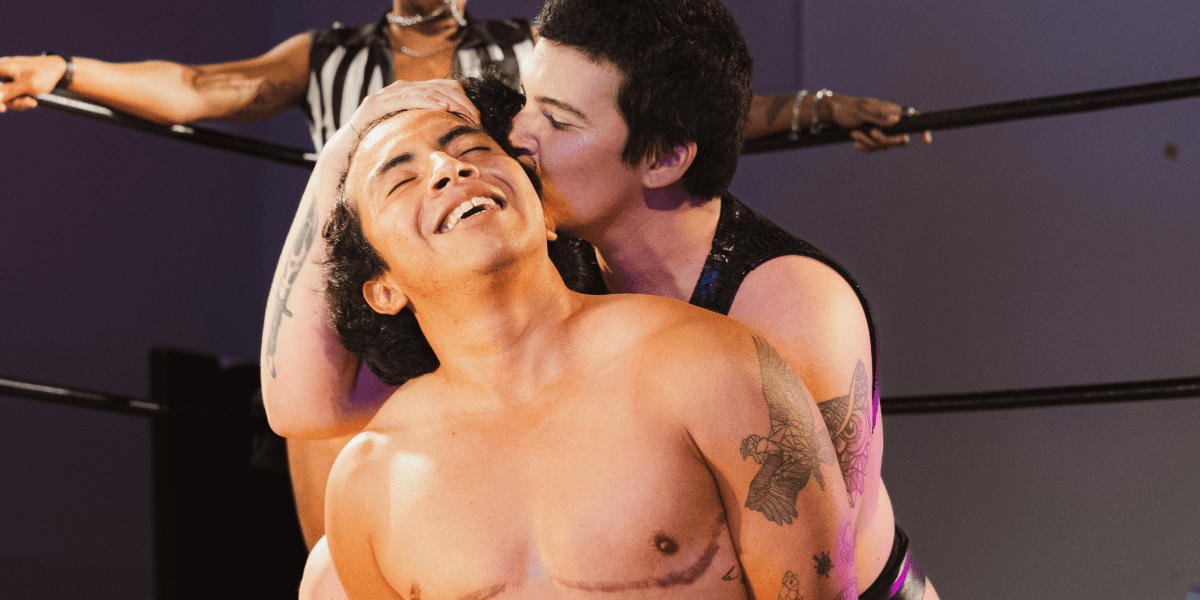
Comments
i don’t remember if it was an article or a book but Staceyann Chin talked about how she loved chasing straight women that turned me off of her. Stereotypically predatory is what i was left with and i haven’t been able to enjoy her works ever since. Anyway, i haven’t had the opportunity to attend my own big queer conference, unfortunately, but i’ll def take these tips to heart
I really really love points 1, 7, 8 and 9!
Regarding point 1:
In non-LGBT/POC/Ability/Mental Health/etc. safe spaces, (I’m looking at you Jezzie, XOJane and Smith *jk…no*) terms like “check your privilege” has become a joke and it makes me upset because there are people lives being affected and mocked on those sites and institutions constantly. Also the overall annoyances I tend to have with “progressive” (white hetero-majority) spaces are vast and I cannot and will not take up this space to list them.
Reading this I did not have the urge to side-eye on what you are doing although I too go to a “prestigious” **really expensive** school myself. I’m checking myself before I wreck myself! Seriously, no jokes and if you must, be funny because ugh.
Finally, THEY ARE NOT EVEN FUNNY WHICH IS A CRIME! Yes SJ circles can be a bit much and humor doesn’t hurt anyone but a hard, sexy, literary rule is that satire should be from the bottom up, not top to the bottom.
Regarding point 7:
Yes to everything that was said, seriously. Oh and hey, girl hey.
Regarding point 8:
Beyonce, I mean it’s Beyonce.
Regarding point 9:
OMG THE PRESSURE TO HOOK UP! It is real and I am so glad you were able to talk about this how it relates to body politic and it’s intersections. There are a couple of AS articles that have talked about this but I think we can sure use another conversation to bring out the feels and thoughts.
This was a nice article, I enjoyed it.
Thank you so much for calling out Jezzie and XOJane specifically. While I used to find these sites helpful for my burgeoning conscious feminism (I recently escaped from the Deep South, where I didn’t quite realize just how NOT-immune I was to the shame the regional culture foists upon women, POC, and queer people). As I became increasingly comfortable with my sexuality – and with my “story” in general, which includes being a WOC, poor, and nearly deaf – I have recognized these sites as increasingly very hostile and NOT safe spaces for me. I’ve had to explain to my white, upper-middle class, straight lady friends why I’ve become disillusioned with these sites, and although they seem to “get it,” I know they’ll never feel the weird shame-iness that I’ve experienced there.
Anyway…you’re whole comment/response is great and I didn’t even intend to reply with this many words. This is actually breaking my Autostraddle comment cherry! …In a novel. Lol, thanks again though Bra!
Aaaaand it looks like I started my AS commenting career with a sentence fragment. Sorry! Accidental stream of consciousness, y’all…
Does anyone have the link to those AS articles?
I’m planning on going to Louisiana Queer Conference next month, and this article just makes me more excited for that!
Maybe not a “big” conference, but about as big as it gets around here, and it will be my first.
YES to all of these, especially re: Janet Mock who I just arrived home from hearing speak at Vassar. She has some radical things to say that the world needs to hear, ESPECIALLY the so-called “gay elite” who are taking our movement and silencing too many voices.
This is so typical of Queer conference programming. They have Janet Mock as a keynote speaker, and then have StaceyAnn Chin, an apologist for the womyn-born-womyn policy at MichFest and a repeated performer at that festival. What’s wrong with this picture?
Great list! Kind of sums up a lot of my feelings on queer circles that swing between disenchanted and still so goddamn necessary.
Yeah that moment when you go to “NYU LGBT Creative Industries Networking Luncheon” and it’s a bunch of white gay men…
It’s like coming over the rainbow and seeing a beheaded unicorn. Okay that was a little morbid but you get the sentiment.
I do remember screaming internally while stuffing my face with cheese. Thank lesbian jesus there was cheese.
Princeton + Autostraddle… all my favorite things in one place. Yes! This is a great list, btw.
I was at Princeton for IvyQ too and I think your assessment and thoughts on the whole event are 100% spot-on (especially re: food/availability of food, Janet Mock, exclusion)! I was also involved with the planning & student leadership side of things, and there’s an important and constant conversation happening about intersectionality, making sure the conference continually becomes more inclusive, and also about hypersexuality at IvyQ and how as a program it can be both unerringly sex-positive and thoughtful about hookup culture and making sure everyone is comfortable in the space. Like this year elaborating on PGPs was something the conference tried to encourage for all the attendees in order to facilitate a sense of inclusive community… I definitely find that adjusting my expectations helps with the conference experience, but also paying attention to the ways things are always developing and becoming more thoughtful and interrogative. (IvyQ is still super young and is moving toward becoming less dominated by cis gay men… etc.)
I was at MBLGTACC the weekend before last and it was… all of the things. The best part of the whole weekend was probably when the Femme Visibility round table discussion was cancelled (because the facilitator wasn’t able to make it there) and so we went and round tabled anyway, around three tables as the largest group in the whole of the giant room that the round table discussions were held in.
Janet Mock spoke at MBLGTACC too and she was amazing. We also had Andrea Gibson and this happened: http://www.youtube.com/watch?v=kVK_pBNIGg4
That video was not from mblgalsdfasdilf though, just that she did that poem for us and it was soooooooooooooooo amaze.
Thanks for this, great read. Especially #7. This ‘B’ forgets too. Good reminder. :)
I’ve gone to Creating Change the last couple of years, and a lot of your points are accurate to it. Though I really haven’t noticed being shut out because of my Beyonce-ignorance…maybe I am just oblivious. I also didn’t notice the hypersexuality so much, and that might also be obliviousness.
I did have a really awkward moment when I went to a hospitality suite and it was entirely locals who were all knew each other and were from the same sorority talking about an orgy the previous night. I have nothing against talking about orgies, but when you’re the only one who doesn’t know everyone else present, you feel a little out of place. The next night I went back to the same hospitality suite and it was awesome and not at all like that.
I think Creating Change is doing reasonably well at having bi/pan/fluid, asexual, and trans* programming. They’re clearly making efforts. There’s always room to improve though. I noticed a lot more transfeminine people at this year’s conference than last year’s, and if that increased representation is a real thing rather than some weird sampling effect on my part, it’s great.
Laverne Cox! She gave the opening keynote at Creating Change 2014! That is all.
There is a definite class privilege aspect to the conference because it’s so expensive, so attendees are either pretty affluent people paying their own way, or they’re scholarship/subsidized and organization-funded attendees who tend to not be so affluent (a few of them, for instance, are homeless teenagers, though more commonly they’re people like me who just don’t make that much money), and there’s definitely a gulf there.
Both years that I have been, there has been a pretty noticeable police presence (more this year than last year) that on one hand is police departments trying to make positive steps by showing up for a queer conference, wanting to learn about the issues and build bridges, sending queer officers to represent, but on the other hand, queer communities don’t always have the best history with police and it’s off-putting or worse for some people (who are disproportionately of color, poor, and/or trans*, groups whose representation we should be trying to increase). We had a day-long training offered on police misconduct and criminalization in queer communities (which I attended, and which was great), and a couple of uniformed cops wanted to attend the thing, and the trainers asked them to not attend because there were safer space concerns. And they left, but the police were still complaining about this incident and how good their intentions were and how you don’t build bridges by excluding one side three days later. Being a police brutality survivor myself, I don’t love the nontrivial police presence that always seems to be at CC. If CC ever ends up in a certain city the police thing could be a serious triggery problem for me.
Yes yes yes.I think we need some sort of conference which specifically addressed and discusses number 9 on your list.
As for my own experiences, the only queer-centered conference I was able to attend was MBLGTACC (the M standing for Midwest in case you’re unfamiliar) ((and the A stands for ally instead of asexual, ew)). I was really excited to attend a conference where I should totally fit in. ~I’m hella queer; y’all are hella queer.~ Honestly, it was so homonormative it felt like an assimilationist fest, and I had multiple panic attacks in bathroom stalls.
Helen,
I’m so happy I got to meet you at IvyQ this year. This post is on point in so many ways. 4,7, and 9 are on point. I struggle with the idea of people not enjoying Beyonce but I’m willing to come around on that one.
Hey Thanks for Sharing Information Great bloggers